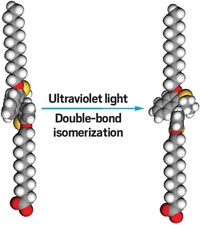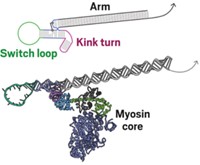Advertisement
Grab your lab coat. Let's get started
Welcome!
Welcome!
Create an account below to get 6 C&EN articles per month, receive newsletters and more - all free.
It seems this is your first time logging in online. Please enter the following information to continue.
As an ACS member you automatically get access to this site. All we need is few more details to create your reading experience.
Not you? Sign in with a different account.
Not you? Sign in with a different account.
ERROR 1
ERROR 1
ERROR 2
ERROR 2
ERROR 2
ERROR 2
ERROR 2
Password and Confirm password must match.
If you have an ACS member number, please enter it here so we can link this account to your membership. (optional)
ERROR 2
ACS values your privacy. By submitting your information, you are gaining access to C&EN and subscribing to our weekly newsletter. We use the information you provide to make your reading experience better, and we will never sell your data to third party members.
Environment
Biocontainer Transport
A polysaccharide molecular container encapsulates a nanotube as cargo and uses myosin to truck it along an actin highway in cells.
by Sarah Everts
January 4, 2010
| A version of this story appeared in
Volume 88, Issue 1
When molecular cargo needs to be shipped to precise locations around a cell, biology often uses molecular motors that walk along molecular tracks with their load in tow. Scientists have been aiming to hijack these cellular highways to deliver drugs and other goods. A team led by Youichi Tsuchiya of Japan’s RIKEN and Seiji Shinkai of the Institute of Systems, Information Technologies & Nanotechnologies, in Fukuoka, Japan, has now designed a molecular container that can encapsulate long, tubular cargo (Angew. Chem. Int. Ed., DOI: 10.1002/anie.200904909). The researchers employed a triple-stranded helical sugar called schizophyllan as the container and showed that the polysaccharide can hold a carbon nanotube. Schizophyllan is a convenient container material because it falls apart in dimethyl sulfoxide solvent and re-forms in water with the load encapsulated. The team observed that the nanotube-laden container is transported by the motor protein myosin at a speed of 95 nm per second along actin protein highways in cells. Because actin filaments connect to a cell’s nucleus, the researchers believe the myosin motors and sugar containers could be commandeered to deliver gene therapies directly to their target.






Join the conversation
Contact the reporter
Submit a Letter to the Editor for publication
Engage with us on Twitter